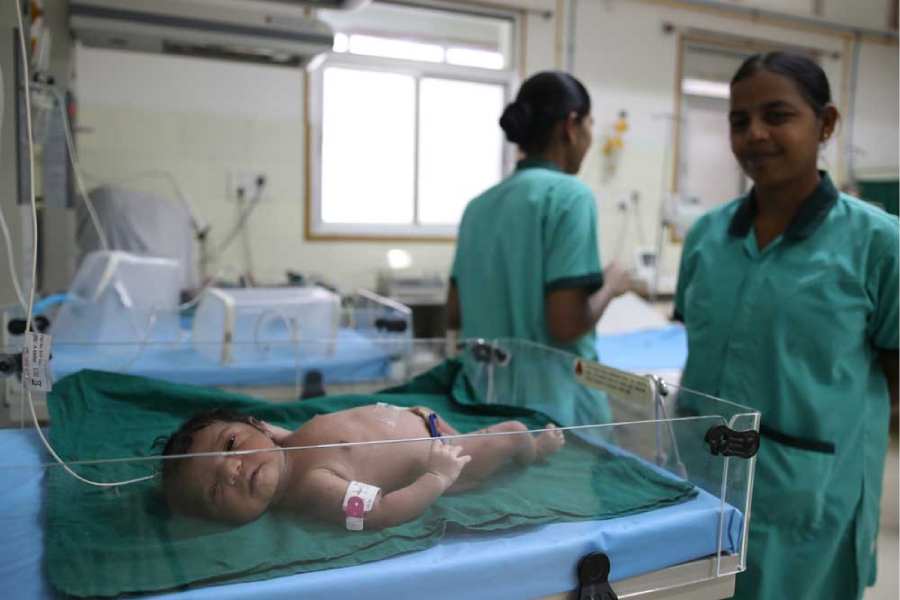India has one of the highest mortality rates due to antimicrobial resistance, with data indicating that one child dies every nine minutes from illnesses caused by antibiotic-resistant bacteria, experts at the Global Ayurveda Festival said on Tuesday.
The experts are of the view that traditional medicines systems such as Ayurveda can contribute significantly to improving the situation.
The plenary session of the fifth edition of the Global Ayurveda Festival on Tuesday discussed the role of traditional medicines in overcoming the threat of antimicrobial resistance, which was declared as one of the top health threats by the World Health Organisation.
"India ranks among the countries with the highest mortality rates due to AMR (antimicrobial resistance) and statistics show that one child dies every nine minutes due to illnesses caused by bugs that resist antibiotics," the organisers said in a release.
Prof Thomas Rampp from the University of Duisburg-Essen in Germany, an expert in integrative medicine, said the use and overuse of antibiotics are leading to antimicrobial resistance.
"The reasons for resistance to antibiotics come from the overprescribing of antibiotics, patients not finishing the treatment properly, the overuse of antibiotics in livestock and fish farming, poor infection control in hospitals and poor sanitation," the release quoted Rampp as saying.
Addressing the plenary session at the Greenfield International Stadium in Kariavattom, Rampp said the US and European countries also face the threat from antimicrobial resistance but the risk to countries in Asia and Latin America is bigger.
The resistance to antibiotics is not a new phenomenon, he said, adding that resistance to penicillin was reported in 1940, though the drug was put into use by 1928.
"This led to the creation of newer antibiotics to overcome that but, in the last three decades, no new antibiotics have been developed and this has aggravated the problem," he said.
Traditional medicine systems such as Ayurveda can contribute significantly to improving the situation as they approach problems and work to improve immunity. This can prevent illness and stop the unnecessary use of antibiotics, the expert added.
Ayurveda has always focused on providing a balanced diet, he said.
Subarna Roy, the director of ICMR-National Institute of Traditional Institute in Karnataka, said their studies showed that resistance to antibiotics is different in various areas within the state.
He warned that antimicrobial resistance is contributing to the rise of diseases such as diphtheria in some regions of India.
A network of facilities established to monitor the antimicrobial resistance situation in India has identified about 10 pathogens that are proving to be dangerous, Roy said.
The conclave, a biennial event, is organised by the Centre for Innovation in Science and Social Action in collaboration with the Union Ministry of Ayush, the government of Kerala and various Ayurveda associations, the release stated.
The central theme of the five-day conclave, which began on December 1, is "Emerging Challenges in Healthcare and a Resurgent Ayurveda."
Except for the headline, this story has not been edited by The Telegraph Online staff and has been published from a syndicated feed.










